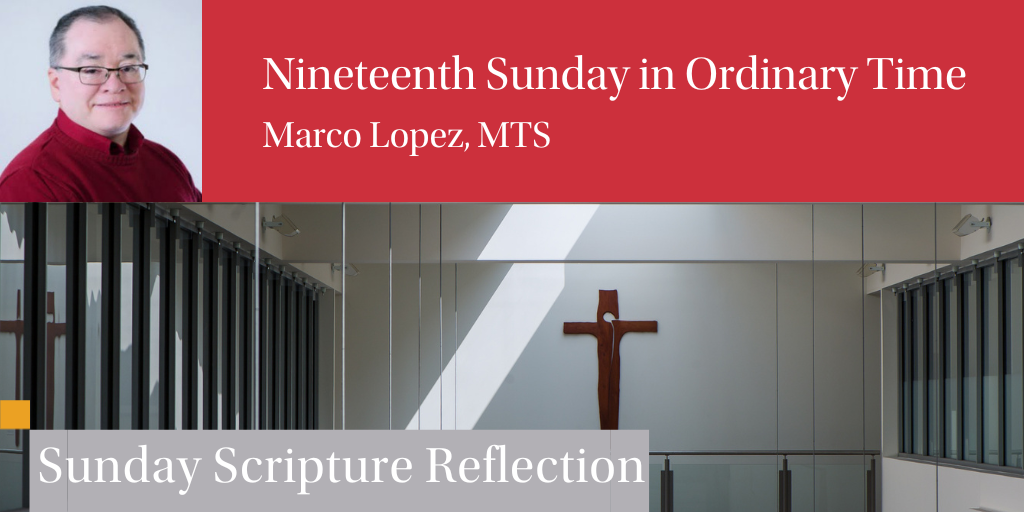
Readings:
Reading I: Wis 18: 6-9
Psalm: 33: 1, 12, 18-19, 20-22
Reading II: Heb 11: 1-2, 8-19
Gospel: Luke 12: 32-48
Waiting for death so that we might have life
Throughout my years in ministry, I have led many preparation sessions for parents and sponsors of infants who are to be baptized. A usual topic of conversation is the role of the godparents, so I always like to ask those present to share their thoughts about this important role. The usual response is that the godparents’ role is to be ready to step in to raise the child if death were to come to the parents. Of course, there is the unanimous agreement that hopefully this never comes to pass. This opens the door to then ask if the godparents’ role is simply to wait for something they hope never happens or if there is something more. On one occasion, one of the participants, acknowledging our apprehension toward death, provoked a conversation about being prepared for it whenever it may come. This sparked a conversation about what those in attendance believe really matters in life; some shared their desire to be more prayerful while others felt they could be more loving towards their family and yet another spoke about simply being kind to others. At that point, I thought it appropriate to introduce Matthew’s Final Judgement (Matt. 25) after which one person remarked, “this is all about salvation, isn’t it?” At that point, I felt my work was done for that morning because truly, God’s Spirit had taken over.
Today’s readings build upon the message of the previous Sunday about being prepared for death as it can come suddenly. In the first reading from chapter 18 of the Book of Wisdom, we are reminded of when death also came suddenly on the night of Passover. As the people of God awaited “the salvation of the just” they did so with “the sure knowledge of the oaths in which they put their faith.” It was this faithfulness in the promise of God that led death to pass over them and which prepared them for liberation and the new life that was to come.
The second reading from the letter to the Hebrews picks up on the theme of the promise of eternal life and the faithfulness of those who believe it will come. Abraham’s faithfulness in God’s promises prepared him for the new life that was to come not only on earth but in the afterlife. Today’s immigrants, like so many I have been privileged to accompany in preparation for their child’s baptism, understand all too well. It takes courage to leave one’s homeland and faith to sustain the journey. Often not knowing where they will be led, they are sustained by their faith in God knowing like Abraham that “the one who had made the promise was trustworthy.”
In last Sunday’s Gospel reading, we listened to Jesus’ parable about the greedy rich man who believed he would enjoy his earthly goods and possessions for years to come only to find out, when death came suddenly to him, that he was wrong. If last Sunday we were instructed how not to prepare for death, today Jesus offers an example of how we might be better prepared to receive God’s inheritance. Jesus calls us to be watchful like the servants, vigilant like the master of the house, and faithful like the steward so as to be in the state of grace to claim our inheritance from God. So, what might be our invitation from these readings? Perhaps it is that we live our lives in watchfulness to not overlook the presence of God already among us. To live life as an immigrant who hopes for a better life and who comes to know that an even greater destination awaits. To be a faithful steward with all that God has given us and to whom God has given much in goods and privileges, much is expected; especially the care of the underserved and excluded.
Like those in the baptismal session, we wait for something we prefer would never happen, yet hopefully we discover that there is something more. God’s promise of eternal life invites us to build a life in Christ; a life that will prepare us for our inheritance of salvation. So yes, it is all about salvation.
